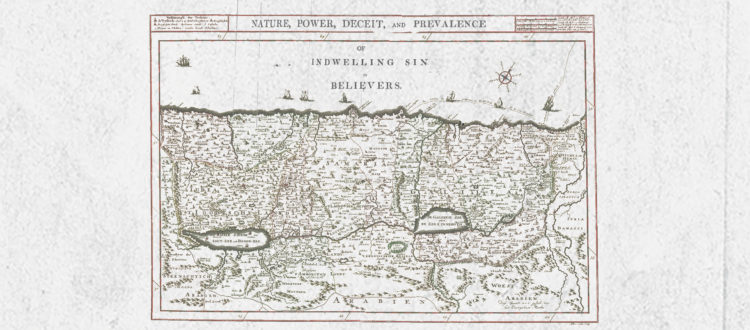The Canaanites Within
The doctrine of indwelling sin is one of the most important doctrines a Christian can diligently study. If we are going to make progress in growth in grace, we must gain a right understanding of indwelling sin. If we are going to be resolved to fight against the remainder of sin in our flesh, until we are in glory, then we need a right assessment about the prevalence and perniciousness of indwelling sin. If we are to preserve in or regain assurance of our salvation, we have to come to terms with the inevitability of indwelling sin. Just as we need to know what the Scriptures teach about the doctrine of depravity, original sin, actual sin, regeneration, justification, adoption, definitive sanctification, and progressive sanctification, so we need to know what the Scriptures teach about the remainder of indwelling sin in every part of our being.
Romans 7 is, of course, the chapter to which most theologians appeal in discussions about the apostolic teaching on indwelling sin. Though there has been plenty of debate about whether Paul was speaking of himself prior to his conversion or in the place of Adam, the “indwelling sin in believers” interpretation of this passage is that which was held by most early church theologians, the Reformers, English Puritans, and the majority of 18th, 19th and 20th Century Reformed theologians. In Romans 7:14-25, Paul is speaking post-conversion about the struggle that he found within his own heart regarding his inability to obey God as he wished on account of the remaining presence of sin within “the body of his flesh.” Without wishing to get into the nuances of disagreement over the meaning of the passage, I would encourage you to read John Piper’s incredibly helpful 10 point defense of the “indwelling sin” view of Romans 7.
That being said, it is likely that no theologian gave more focused attention to the subject of indwelling sin than that of John Owen. Owen devoted an entire volume to the subject of indwelling sin, as well as treatments of it throughout his other writings. In his work on Psalm 130, Owen gave an interesting analogy between the Israelites experience dwelling with the remaining Canaanites during the time when they were possessing the promised land and the believers experience with remaining indwelling sin during the time of his or her sojourn on earth. Indwelling sin is equivalent to “Canaanites within our own hearts.” Owen wrote,
1. Though the strength of every sin be weakened by grace, yet the root of no sin is in this life wholly taken away. Lust is like the stubborn Canaanites, who, after the general conquest of the land, would dwell in it still, Josh. 17:12. Indeed, when Israel grew strong they brought them under tribute, but they could not utterly expel them. The kingdom and rule belongs to grace; and when it grows strong it brings sin much under, but it will not wholly be driven out. The body of death is not utterly to be done away, but in and by the death of the body. In the flesh of the best saints there “dwells no good thing,” Rom. 7:18; but the contrary is there,—that is, the root of all evil: “The flesh lusts against the Spirit,” as “the Spirit lusts against the flesh,” Gal. 5:17. As, then, there is a universality in the actings of the Spirit in its opposing all evil, so also there is a universality in the actings of the flesh for the furtherance of it.
2. Some lusts or branches of original corruption do obtain in some persons such advantages, either from nature, custom, employment, society, or the like circumstances, that they become like the Canaanites that had iron chariots; it is a very difficult thing to subdue them. Well it is if war be maintained constantly against them, for they will almost always be in actual rebellion.
3. Indwelling sin though weakened retaineth all its properties. The properties of a thing follow its nature. Where the nature of any thing is, there are all its natural properties. What are these properties of indwelling sin I should here declare, but that I have handled the whole power and efficacy, the nature and properties of it, in a treatise to that only purpose. In brief, they are such as it is no wonder that some believers are by them cast into depths; but it is indeed that they do escape them. But thereof the reader may see at large my discourse on this particular subject
1. John Owen, The Works of John Owen, ed. William H. Goold, vol. 6 (Edinburgh: T&T Clark, n.d.), 342–343.



